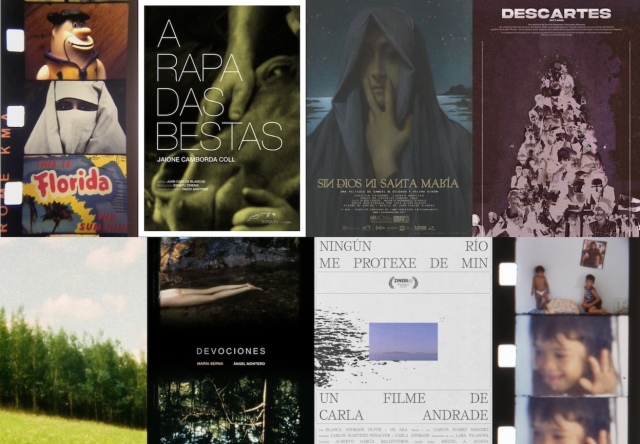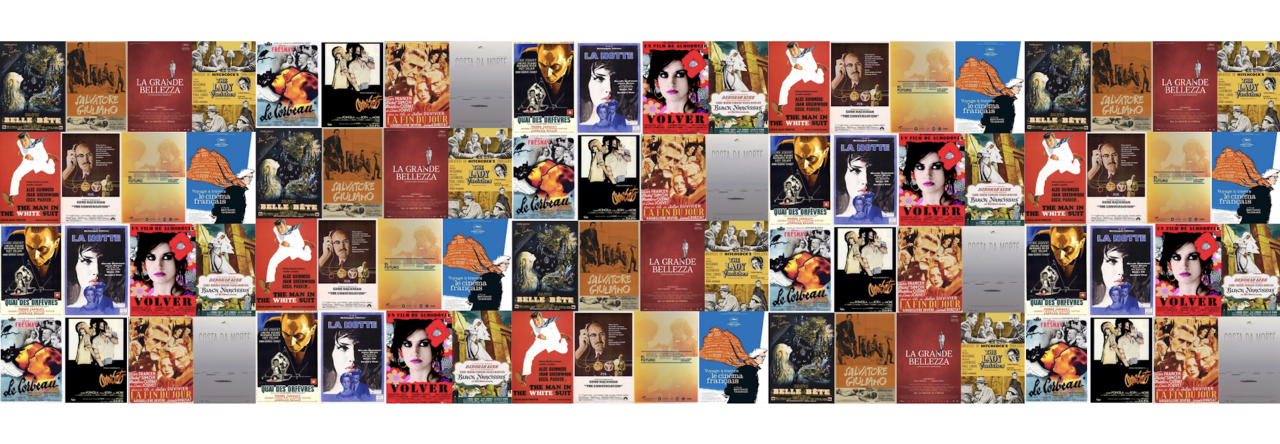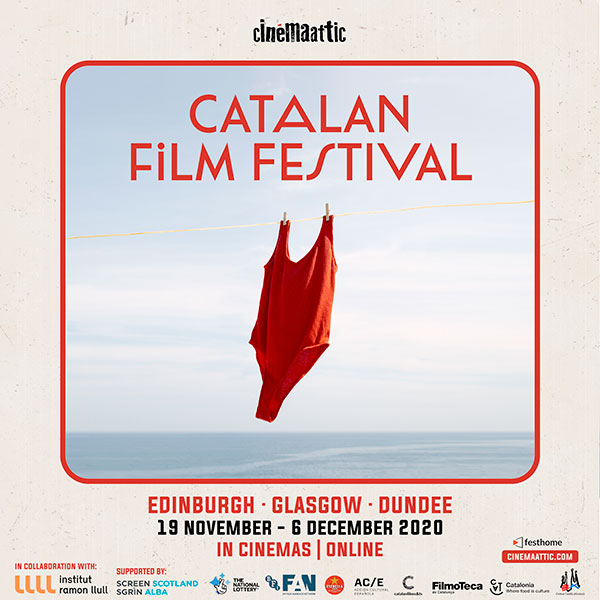
I have previously written about the 4th and 5th editions of this Spanish online festival. Specifically dedicated to films – from the Iberian Peninsula (Spain and Portugal) and Ibero-America (Spanish and Portuguese-speaking Latin American countries) – whose form, style, or duration mean that they will struggle to access the normal distribution routes or obtain a commercial release, Márgenes initially takes place in key cities in Spain, Mexico, Chile and Uruguay at the start of December, before moving online during the second half of the month. Documentaries and experimental films tend to dominate the selection.
The online side of the festival makes the films free to view. Sometimes there are rights restrictions on specific titles in certain countries – at the moment Generación Artificial and Santa Teresa y otras historias aren’t visible to me, but I don’t know if that’s a rights issue or just a glitch on the website. Films that aren’t in Spanish tend to have Spanish subtitles, but in past years the majority of the Spanish-language films have had English subtitles. The subtitles aren’t listed on the website – I’ve put a * next to the trailer links below where the festival has used a trailer with English subtitles, which is often a good indication of there being subs on the film as well [UPDATE: this hasn’t been a good indicator this time around]. But given that the films are free to view, you aren’t going to lose anything by starting a film to see whether subtitles appear. I never manage to watch everything, but I will update this post to indicate the presence of subtitles on any films I watch [UPDATE: I’ve watched two and looked at a third – I’ve added the subtitle info below].
The previous editions I’ve explored have revealed gems such as África 815 (Pilar Monsell, 2014), El gran vuelo / The Great Flight (Carolina Astudillo, 2014), and La sombra (Javier Olivera, 2015) (the latter was my favourite in last year’s festival). I can recommend No Cow on the Ice (I reviewed it earlier this year) and personally will be aiming to at least catch Pasaia bitartean, Santa Teresa y otras historias (if it’s available), and Las letras (on the basis that I’ve read positive things about them in relation to other film festivals). The festival announced its prizes yesterday – I’ve marked the winners below as well.
This is the line-up of titles in the 2016 official selection (clicking on the title will take you to the streaming page for that film):
> Arreta (Raquel Marques and María Zafra, 2016, Spain – 60 min) *trailer
> Generación Artificial / Artificial Generation (Federico Pintos, 2015, Argentina – 62 min) *trailer
> Historias de dos que soñaron / Tales of Two Who Dreamt (Andrea Bussmann and Nicolás Pereda, 2016, Mexico/Canada – 82 min) *trailer
> CAMIRA PRIZE: Il solengo (Alessio Rigo de Righi and Matteo Zoppis, 2015, Italy/Argentina – 66 min) trailer
> Inadaptados (Kikol Grau, 2015, Spain – 41 min)
> BEST FILM: Las letras / The Letters (Pablo Chavarría Gutiérrez, 2015, Mexico – 77 min) [with English subtitles] trailer
> SPECIAL MENTION BY THE JURY: No Cow on the Ice (Eloy Domínguez Serén, 2015, Spain – 63 min) *trailer
> Panke (Alejo Franzetti, 2016, Argentina/Germany/Burkina Faso – 46 min) *trailer
> NUMAX EXHIBITION PRIZE: Parábola del retorno (Juan Soto, 2016, Colombia – 41 min) trailer
> Pasaia bitartean (Irati Gorostidi, 2016, Spain – 51 min) [Castilian Spanish subs] *trailer
> Placa Madre / Motherboard (Bruno Varela, 2016, Mexico/Bolivia – 54 min) trailer
> Santa Teresa y otras historias / Saint Teresa and Other Stories (Nelson Carlo de los Santos Arias, 2015, Dominican Republic/USA/Mexico – 65 min) [no subs] *trailer
> Yo me lo creo (Terrorismo de Autor, 2016, Spain – 40 min) trailer
The Márgenes Festival 2016 also includes a retrospective of the work of Lluís Escartín, titled ‘no tengo nada que decir, prefiero escuchar. 30 años documentando lo invisible‘ [I don’t have anything to say, I prefer to listen: 30 years documenting the invisible], and a cycle dedicated to Chilean director José Luis Torres Leiva, ‘Un lugar en el mundo‘ [A place in the world] – they are likewise free to view online until 31st December.












